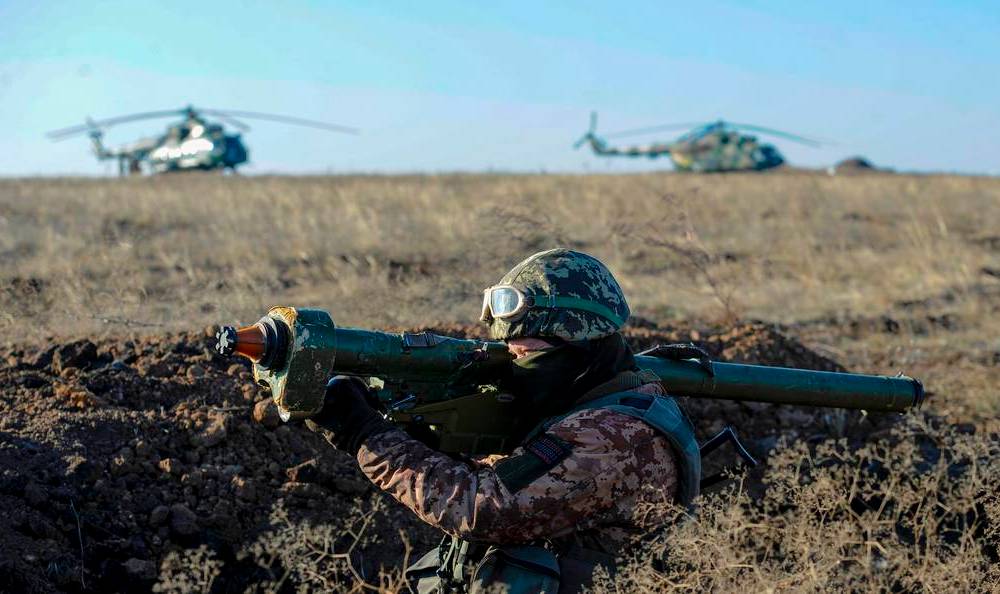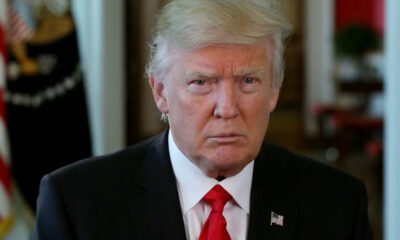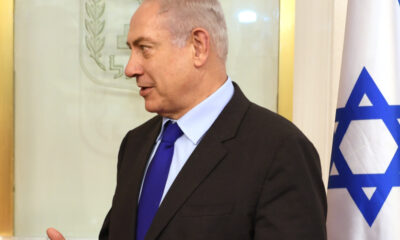Accountability
NATO countries urged to supply more weapons to Ukraine

Germany is coming under increasing pressure from European allies to drop its long-standing refusal to supply weapons to Ukraine and help the country to defend itself from a possible Russian attack.
Britain flew short-range anti-tank missiles to Ukraine on Monday. They avoided German airspace.
British Defense Minister Ben Wallace indicated to lawmakers that more military aid and extra security assistance will likely be required as a result of Russia’s “increasingly threatening behavior” on Ukraine’s borders, where the Kremlin has amassed more than 100,000 troops.
Wallace said there is a “legitimate and real cause for concern” that Russia is planning an invasion. Russian officials have denied they have any such plans, but U.S. Secretary of State Antony Blinken warned Wednesday, ahead of talks with Ukrainian President Volodymyr Zelenskiy, that the “sense of the threat to Ukraine is unprecedented.”
Berlin relented on blocking the purchase of anti-drone rifles after being able to ascertain that they were non-lethal weapons.
Kyiv has been working frantically to deal with shortages in military equipment and capabilities, however sources in Berlin are concerned that supplying arms may be seen by Moscow as a sign of intimidation and could trigger a Russian attack.
Reznikov has warned that fears of confronting Putin from a position of strength were misguided. “Not provoking Russia, that strategy does not work and will not work,” he said last month. Ukraine has been buying arms through deals with the United States, Britain, Lithuania, France and Turkey.
The Biden administration last month approved $200 million in additional defensive security aid to Ukraine and American officials Wednesday said the White House was weighing new supply options to try to raise the costs for Russian President Vladimir Putin should he decide to attack.
Tobias Ellwood, chairman of the defense committee of the British parliament, said he hopes other European allies “will follow our lead before the temperature drops and the freezing conditions make an invasion operationally possible.”
Russian troops and military hardware, including S-400 surface-to-air missiles, have been arriving in Belarus in the past week. The drills pose a direct threat, according to Lithuanian Defense Minister Arvydas Anusauskas
“In the current situation, we see the entry of the Russian military into Belarus not only as a destabilizing factor in the security situation but also as a more direct threat to Lithuania,” Anusauskas said in a Facebook post. “I will shortly be meeting the ambassadors of nine NATO countries that are actively contributing to strengthening Lithuania’s security,” he said.
Terry A. Hurlbut has been a student of politics, philosophy, and science for more than 35 years. He is a graduate of Yale College and has served as a physician-level laboratory administrator in a 250-bed community hospital. He also is a serious student of the Bible, is conversant in its two primary original languages, and has followed the creation-science movement closely since 1993.
-

 Civilization5 days ago
Civilization5 days agoWhy stand with Israel
-

 Civilization4 days ago
Civilization4 days agoNew Jersey and beyond – next Trump targets
-

 Guest Columns4 days ago
Guest Columns4 days agoNo Going Back
-

 Constitution3 days ago
Constitution3 days agoCourt Hasn’t Yet Crippled Trump’s Lead Over Biden
-

 Executive2 days ago
Executive2 days agoPeter Daszak finally gets his!
-

 Education4 days ago
Education4 days agoTo Change the World, Protest Less, Study More
-

 Executive2 days ago
Executive2 days agoToxic Atmosphere at FDIC Spurs Calls for Chair’s Resignation
-

 Civilization4 days ago
Civilization4 days agoHow Netanyahu Can Convince Israelis, Reassure US, and Satisfy Saudis


